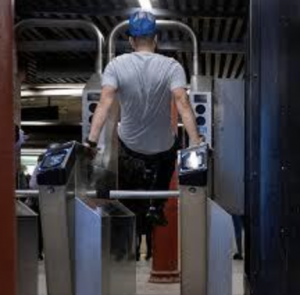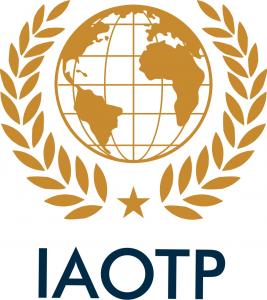
LOS ANGELES, CA, UNITED STATES, September 13, 2024 /EINPresswire.com/ -- As a native New Yorker and the author of 'Broken Windows, Broken Business,' Michael Levine says, "I have spent nearly 60 years observing the intricate dynamics of my city's subway system. Once a symbol of order following the crackdown on crime in the 1990s, New York's public transit system now finds itself at a critical crossroads. Fare evasion, once an occasional nuisance, has escalated into a daily occurrence, posing a severe financial and social threat to the Metropolitan Transportation Authority (M.T.A.) and the city itself."
Recent reports, such as those by Ana Ley of the New York Times, reveal alarming statistics: passengers skip paying the fare on nearly half of all New York City bus rides. This widespread disregard for basic transit rules translates to over one million fare evaders each weekday. The impact is financial and strikes at the heart of the city's order and safety.
Janno Lieber, C.E.O. of the M.T.A., has labeled fare evasion as "the No. 1 existential threat" to the system, highlighting its contribution to a growing perception of lawlessness. This is more than just a perception—violent crime rates per rider have spiked since 2019, and only 49 percent of daytime subway riders reported feeling safe in the most recent survey, a dramatic drop from 82 percent in 2017.
The Roots of Disorder: A Complex Crisis Unfolds
The surge in fare evasion can be traced back to two significant developments. The first is the societal shift during the COVID-19 pandemic, where disrupted fare collection led many to view paying fares as optional . However, the issue predates the pandemic; fare evasion began rising sharply in 2017, before COVID-19 hit. This trend coincides with a broader societal shift toward leniency in law enforcement, driven by concerns over mass incarceration and its disproportionate impact on communities of color.
Policy changes have mirrored these shifts in attitude. In 2017, the Manhattan District Attorney's office stopped prosecuting most fare evasion cases, with Brooklyn following soon after. Across the country, similar trends emerged, such as Oregon's decriminalization of all drugs and calls in Washington, D.C., for a more relaxed approach to immigration enforcement. While these policies aimed to address systemic inequalities, their implementation has sometimes resulted in unintended consequences, such as increased public safety concerns and surging fare evasion.
A Fork in the Road: Charting a New Path for New York's Transit System
In response to these challenges, cities across the U.S. are re-evaluating their approaches. Washington and Philadelphia have experimented with physical barriers to deter fare evasion, while New York and Chicago have increased police presence in their transit systems. Yet, simply reverting to old methods is not enough. A growing contingent of activists argues for making public transit free, funded by increased taxes—a proposal met with skepticism over potential underfunding and system reliability.
Determining fair and practical consequences for fare evasion remains a complex issue. While harsh penalties are primarily off the table, modest fines could serve as a deterrent, similar to the "broken windows" approach to minor offenses that once helped restore order in New York.
Conclusion: A City at a Crossroads
New York's public transit system is more than just a means of transportation; it is a lifeline for millions and a symbol of the city's resilience and vibrancy. Yet, New York stands at a critical juncture with rising fare evasion, declining public safety, and looming budget deficits. To reclaim its sense of order and safety, the city must balance public safety needs with evolving social attitudes toward law enforcement.
The decisions made today will shape the future of New York City—whether it remains a beacon of opportunity and growth or succumbs to disorder. Bold, thoughtful action is needed to restore balance and order to a city that many, like myself, proudly call home.
For more information, please visit www.BrokenWindowsBook.com.
Amanda Kent
Boundless Media USA+1 313-403-5636email us here
Legal Disclaimer:
EIN Presswire provides this news content "as is" without warranty of any kind. We do not accept any responsibility or liability for the accuracy, content, images, videos, licenses, completeness, legality, or reliability of the information contained in this article. If you have any complaints or copyright issues related to this article, kindly contact the author above.
You just read:
News Provided By
September 13, 2024, 16:39 GMT
EIN Presswire's priority is author transparency. We do our best to weed out false and misleading content. The content above is the sole responsibility of the author who makes it available. If you have any complaints, kindly contact the author above.
Originally published at https://www.einpresswire.com/article/740721666/broken-windows-broken-business-the-decline-of-order-and-its-threat-to-new-york-s-future





